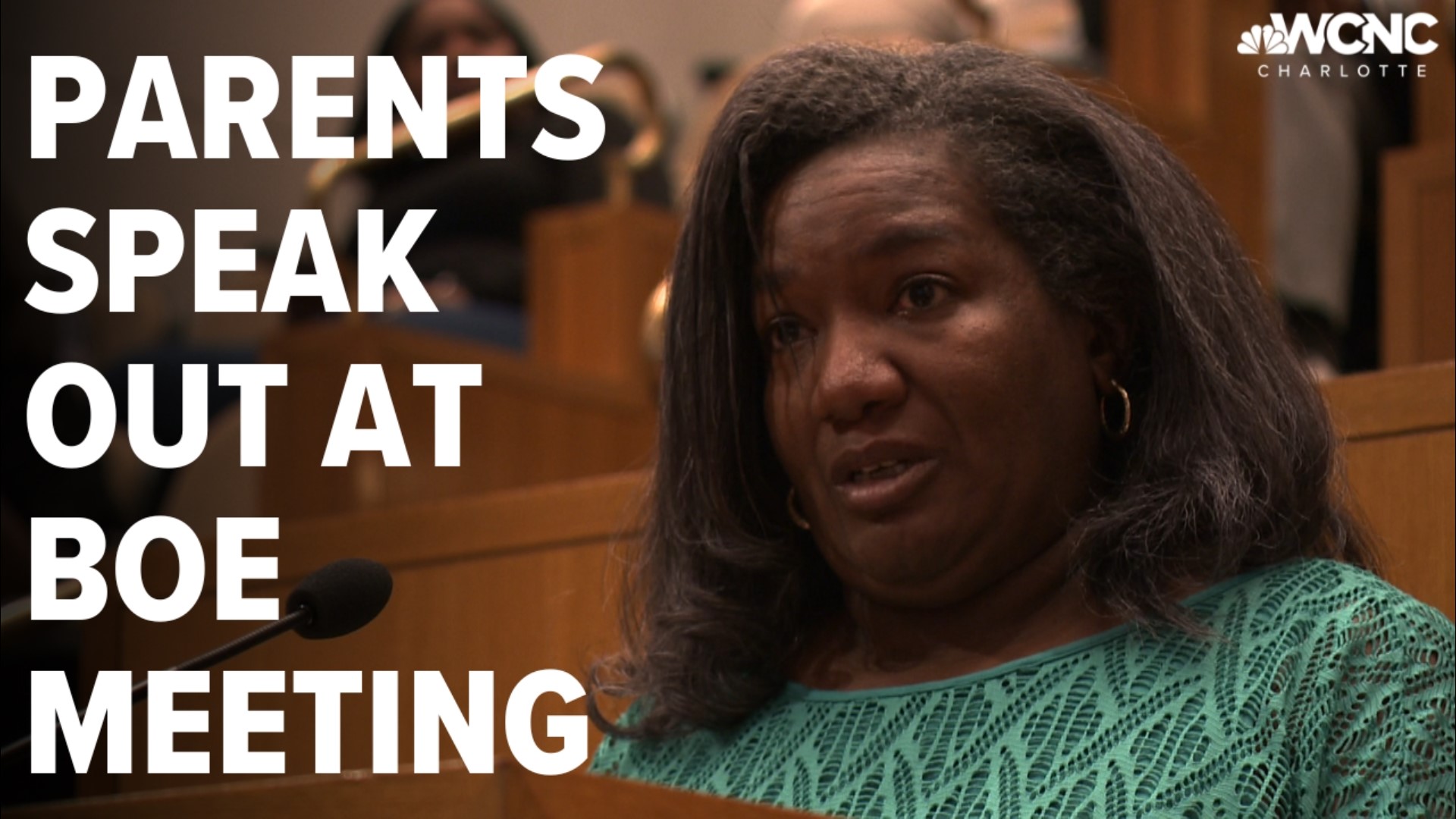MECKLENBURG COUNTY, N.C. — The Charlotte-Mecklenburg Schools board meeting Tuesday saw tension rise as over 40 speakers expressed their concerns on a variety of topics, from book bans to student redistricting.
CMS School Board Member Jennifer De La Jara, an at-large member of the board since 2019, also announced that she would not be running for re-election.
She alluded to supporting a candidate who represents a new voice of the community in her farewell address.
“I would never suggest that anyone vote just on identity politics,” De La Jara said. “It is time that we make history. I will be supporting a strong Latina candidate who is a qualified thought leader and has a deep passion for advancing student outcomes and just happens to be bilingual and bicultural.”
This news came at a critical time for the school board, with politics and scrutiny at an all-time high.
The announcement of a district superintendent had also been delayed, causing some further tensions among board members and the community.
PREVIOUS COVERAGE: Why CMS is choosing anonymity for its superintendent finalist
Tuesday night's meeting was dominated by discussions on hot-button topics such as student redistricting and book bans.
Many speakers expressed their dissatisfaction with plans to rezone and change feeder patterns in some schools in the southern portion of Mecklenburg County.
Current plans would move some students to schools miles away from where they currently are.
PREVIOUS COVERAGE: CMS discusses new proposed school boundary changes
“It’s about physical geography nine miles made every longer by too much traffic, too much construction, and not enough drivers,” one parent, Bo King, said to the board.
Others discussed the controversial issue of book bans and what they considered "pornography" in Palisades High School.
One book, in particular, had explicit scenes that some felt were inappropriate for teens. They read aloud portions of the books to board members.
“This particular one talks about rape of a father of a 7-year-old girl,” one speaker said.
Another came to the lectern and talked through tears about the books.
“I would never sit with my 17-year-old son and say let’s read this book together, it is so disgusting,” another parent said.
The effort to restrict books had some believing that there were ulterior motives at play. They see it as part of a far-right political agenda aimed at demonizing education.
“Calls for banning books, restricting access to diverse curriculum, demonizing folks who work in education is not new,” Rae LeGrone, a CMS teacher, said. “What is unique is this far right ban to ban and restrict information is a well-funded political agenda.”
The books that are most called to be banned in schools vary depending on the region and the individual school.
However, according to the American Library Association, the most frequently challenged books include a variety of sensitive and controversial issues, including race, gender identity, sexuality, and violence.
Interim Superintendent Crystal Hill said the district is restructuring its current policy on how and what books are selected in schools. That is expected to be reviewed by board members later this week.
The school board also looked at a progress report measuring student achievement.
The report shows that just under 50% of CMS students in 2nd to 8th grade met or exceeded their growth target in reading.
Reading is included in English Language Arts, and less than 50% is not the district's goal. Their goal is to have 60% of 2nd to 8th grade students meet or exceed their growth target in reading this school year.
The district is measuring the growth of these students, which means how far a student has progressed from one year to the next.
"The goal should be [to] exceed growth with every single student, because meeting growth in my opinion isn’t enough especially for students who may be behind," Hill said.
This growth is critical, especially post-pandemic because some students are not where they need to be academically for their grade level. Growth shows they are at least making progress toward the goal.
Redistricting, book bans, and student achievement are all things the remaining board members up for re-election will have to answer to if they decide to run again. At-large board members Elyse Dashew and Lenora Shipp both are up for re-election this year.
Contact Shamarria Morrison at smorrison@wcnc.com and follow her on Facebook, Twitter and Instagram.

